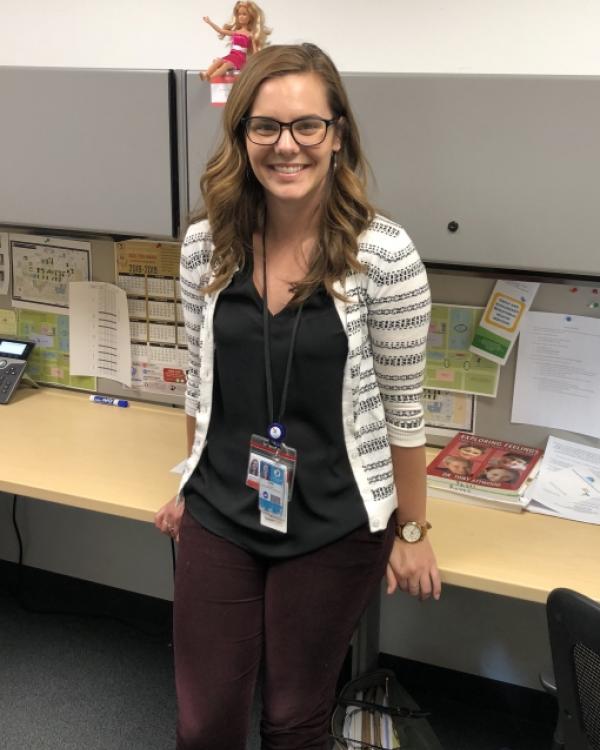
This week, we caught up with Erin Engstrom, a doctoral student in the Dept. of Counseling, Clinical, and School Psychology (CCSP) who is currently an intern at the University of Colorado School of Medicine in Aurora, CO. We spoke with Erin over a year ago before she made the move out of state, but we got to circle back and find out how she’s doing now!
GGSE: How are you? What is your internship experience like?
Engstrom: I am loving my internship placement so far, and really feel like I am in the right place! I am currently an intern at the University of Colorado School of Medicine-JFK Partners, which is also a division of Developmental Pediatrics at Children's Hospital Colorado. It was a big change moving from Santa Barbara to Denver, but I have really enjoyed the change in setting, and even discovered I can tolerate the snow! I am lucky to have matched with a placement that includes an extremely talented multidisciplinary team, and I have supervisors who have been supportive of my transition and overall training. I am excited to share that I will be staying at JFK Partners another year as a postdoctoral fellow!
GGSE: What does your internship position entail?
Engstrom: My internship consists of multiple roles in multiple settings. In my major rotation in Developmental Disabilities at JFK Partners, I provide individual and group therapy to children, teens, and young adults with Autism Spectrum Disorder (ASD) and comorbid mental health challenges (such as anxiety and depression). I am also part of a multidisciplinary team (including psychology, psychiatry, speech-language pathology and occupational therapy) that provides comprehensive developmental evaluations to children and teens suspected of having ASD or another developmental disability. On top of that, I participate in coursework and research as a Leadership Education in Neurodevelopmental and Related Disabilities (LEND) fellow.
I also had two minor rotations. My first was in the Pediatric Sleep department at National Jewish Health, where I provided assessment, consultation and parent education to families with children with sleep disorders. My current minor rotation is at the Johnson Depression Center at CU School of Medicine. I provide individual and group therapy to individuals of all ages with anxiety and mood disorders.
On top of my clinical experiences, I also had the opportunity to teach helping skills to first and second year medical students at CU SOM, as well as provide lectures on research and intervention for ASD in the LEND courses.
GGSE: Has this experience informed your research going forward?
Engstrom: This year, I have been able to continue my research interests in developing interventions to improve mental health and quality of life in individuals with ASD. As a LEND fellow, I am required to lead a research project during my fellowship year. I was able to blend my interest in ASD intervention with my new training in Pediatric Sleep Disorders and conducted a systematic literature review on behavioral sleep interventions for youth with ASD and pediatric insomnia. Sleep intervention was a new clinical experience for me, so I thought this project would be the best way to learn more about it!
As a postdoctoral fellow next year, I will be able to join a large research project that seeks to train 30 schools in the Denver Public School District to implement a group intervention for anxiety and ASD, called Facing Your Fears. I’ve had the clinical training to learn to implement this group, and I am also getting training to be research valid in Autism/Anxiety specific assessments. I will also lead my own project as a postdoc fellow. Right now, I am particularly interested in assessing the needs of medical students on the CU SOM campus who have a diagnosis of ASD, with the hope of developing a support group and community for these students. This interest came out of my experience teaching and coaching medical students, as I saw that there is a big need for more supports for medical students with disabilities. I am still in the brainstorming phase of my specific research ideas, but am grateful that I have supportive supervisors and research mentors who encourage me to pursue my interests and gain new research knowledge and experience.